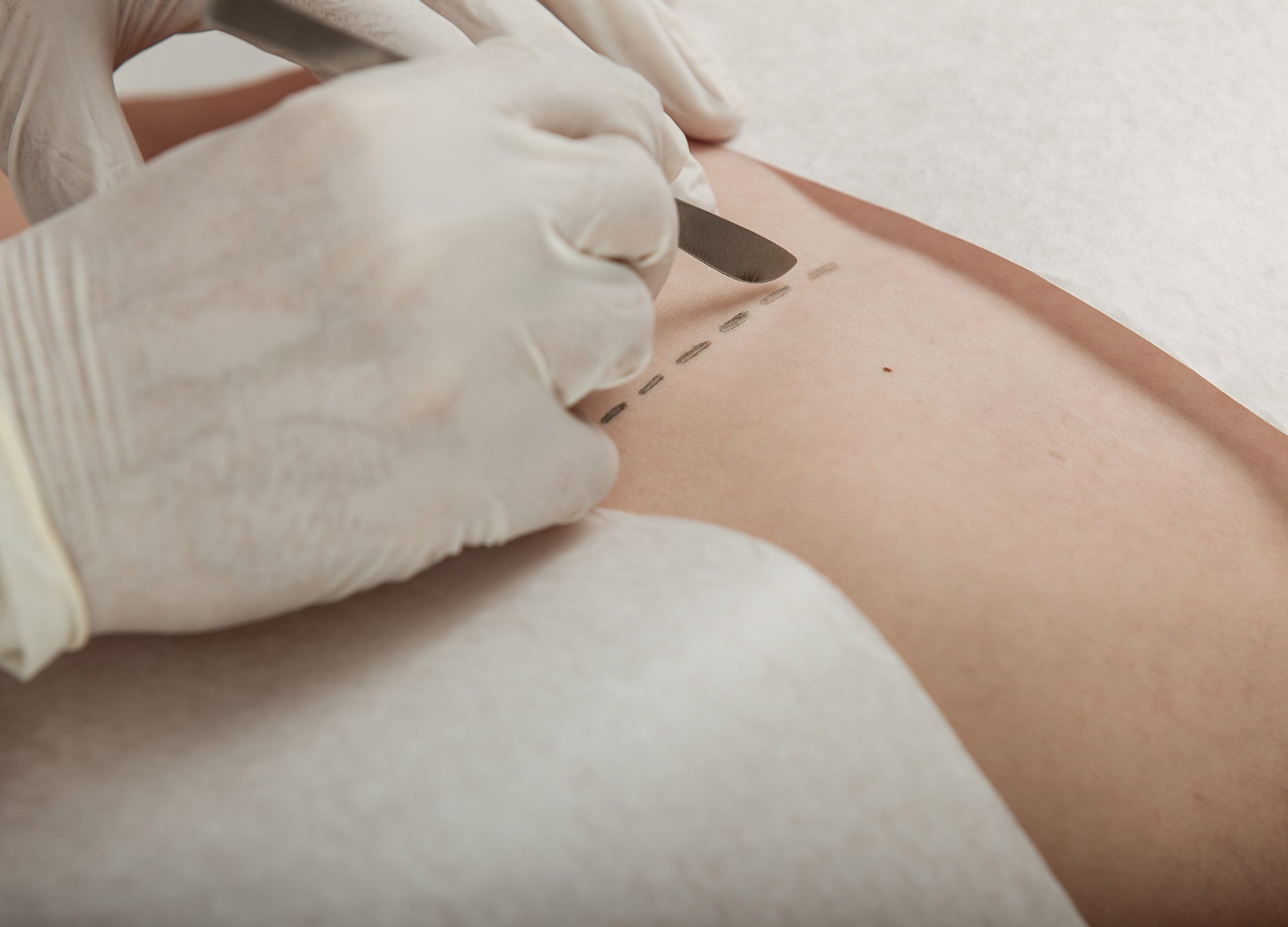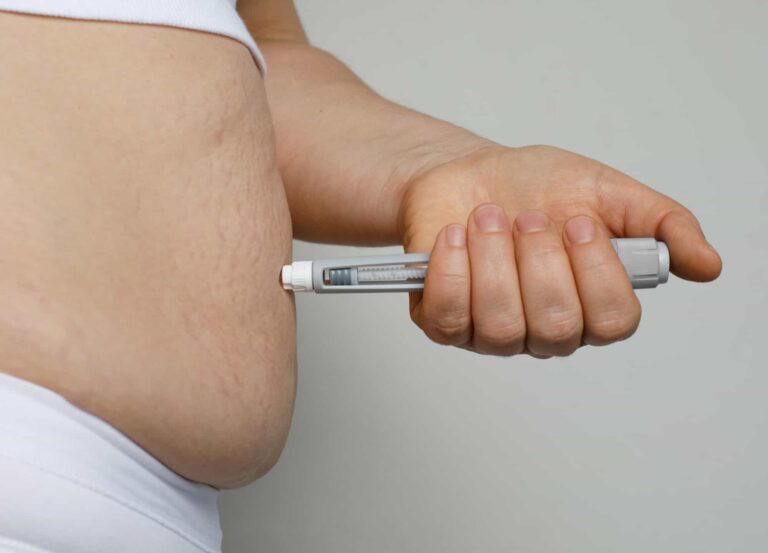Sleeve gastrectomy, aka gastric sleeve surgery, is a weight-loss surgery that shrinks your stomach to help you lose weight. It’s a less invasive procedure compared to gastric bypass surgery, since it doesn’t involve a reconstruction of your intestinal tract.
Deciding whether gastric sleeve surgery is right for you is a detailed process that can usually involve multiple consultations, a diet plan, and possibly even a psychological exam. We asked the experts to provide some insight to help you in your process, both before and after surgery.
Before Surgery
1. Change your diet
A gastric sleeve is a serious procedure, and one you should prep for in advance. Your doctor may prescribe a special pre-op diet for you to start approximately two weeks before surgery—although the timing can change, depending on your doctor and your individual needs. “It’s important that patients follow a true liquid diet, mostly consisting of protein shakes, with the goal of keeping caloric intake to 1,200 calories per day or lower,” says New York City-based bariatric surgeon Dr. Daniel J. Rosen. “The liquid diet prepares the body for surgery and helps shrink the liver. The more weight lost, typically the more the liver shrinks, which is helpful for bariatric surgery because the surgeon will have to lift the liver up and out of the way to get to the stomach. A smaller liver can help the surgery go more smoothly, as a smaller liver can be elevated easier and is less likely to be injured.”
2. Change your grocery list
You’ll need to eat a lot of protein after surgery—roughly 60 to 80 grams a day, says Dr. Rosen. “Protein helps build and maintain muscle mass, is a source of energy, and can help keep hair, skin, and nails strong post-surgery,” he explains. “Prioritizing protein and engaging in strength training when medically cleared signals to your body to preserve muscle and to prioritize burning fat, to meet energy requirements.” Take the time before surgery to figure out which protein powders you like, then find some protein-rich foods you’ll be able to incorporate into your diet without adding too many extra calories.
“It’s important to have the proper foods and supplements at home, ready for you when you get home from surgery,” says Dr. Channing Chin, a Wayne, New Jersey, bariatric surgeon. “But be careful not to get more than a month’s supply. Some patients experience taste changes after surgery, and your favorite protein drink may not be your favorite anymore.”
3. Ensure your wardrobe is suitable
You will likely experience some soreness after surgery. “Wear loose and comfortable clothing,” says Dr. Rosen. “Bending down to pull up tight pants or stretching arms overhead to get on a fitted shirt may be painful—and therefore the looser the clothes, the better.” It’s also a good idea to have some “transition” clothing, to fit you at various stages of your weight loss.
4. Stop smoking
Quit smoking at least two months before surgery. “Smoking and vaping tobacco and marijuana can decrease oxygen in your blood,” says Dr. Chin. “This ultimately affects all aspects of healing and increases risk of leaks, infections, and pneumonia.” In fact, your doctor may refuse to perform the surgery altogether if you still smoke.
5. Prepare your hospital bag
Gastric sleeve surgery requires an overnight hospital stay, so pack anything you think you may need to be comfortable—including those new, loose clothes you’ve stocked up on.
6. Prepare your support group
It’s important to educate your friends and family, to make sure you have people around to help out during your recovery. You might also need both mental and physical support throughout this journey, so your doctor may encourage you to join a post-bariatric support group. “They provide encouragement and, as the name implies, support,” says Dr. Rosen. “Some groups even offer continuing education on relevant topics, to help patients achieve and maintain goals surrounding weight.” He recommends asking your doctor for recommendations and seeking out a group that’s moderated by a medical professional.
7. Complete any requirements for insurance coverage or arrange financing
Depending on your insurance plan and specific needs, your surgery may or may not be covered by insurance. There are typically a few factors involved, including your body mass index and any related health issues. “Please consult with the surgeon’s insurance specialist, for any specific questions,” says Dr. Chin. “Two patients can have the same insurance but very different benefits, based on employer, so don’t assume anything.”
8. Know the facts
Make sure you find out from your surgeon what your gastric sleeve surgery entails. Talking in detail with your doctor can reduce fear and anxiety associated with the procedure—and can also help produce the best results. There should be no doubts or lingering concerns heading into surgery. You should know everything you need to do and everything that will be done.
After Surgery
1. Follow the diet your doctor sets for you
If you try to eat solid foods too soon or eat food high in sugars and fats, you could risk harming yourself or damaging your stomach. “By not adhering to post-op eating guidelines, several things can happen. In the short term, certain food types, like starches, can get stuck and cause vomiting, resulting in incisional pain and, at extreme, a leak,” says Dr. Chin. “It can also slow weight loss and, in the longer term, cause weight gain.”
Find new recipes so food doesn’t become boring after surgery. It’s important to stick to your diet plan. “After about six weeks post-operation—and if the patient tolerates the soft diet well—they will most likely begin advancing the diet to that of a modified regular diet that will emphasize lean protein, fruits, vegetables, and high-fiber whole grains,” Dr. Rosen says. “The protein and water requirements will still be imperative, and patients will need to avoid bread and rice until 8 to 10 weeks after surgery, as they are high-risk foods that may get stuck and will likely not sit well.” Staying proactive so food doesn’t become stale or boring will help you avoid turning to foods you shouldn’t eat.
2. Track your calories
The University of California’s dietary guidelines suggest a daily caloric intake of less than 400 calories a day for the first two weeks post-op,and, after that, gradually increasing to your final daily intake of 900 to 1,000 calories at six months post-op. Make sure you aren’t ingesting foods that are high in calories, sugar, or fat. Always make sure you speak to your doctor about how many calories you need each day. They’ll know you and your body and will give you a specific target catered to your particular needs.
3. But don’t drink your calories
Only drink low-calorie drinks like water, sugar-free juices, and unsweetened ice tea. You’ll need to limit your overall calories as part of the weight-loss program—and instead of consuming calories on drinks that provide only empty calories, use your calories to eat protein. “It’s very important that you chew your protein rather than drinking your protein. Your body needs to go through the act of eating, which also helps curb appetite,” says Dr. Chin. “That’s why liquid diets don’t work in the long run.”
4. Do not go back to work until you are ready
Your recovery time will vary, but it generally takes at least two weeks before people are ready to return to work after surgery. “It’s not uncommon to have lower energy post-surgery and for you to take a few days or weeks to adjust to a full workday, once cleared,” says Dr. Rosen. You should also take on only light duties when you first return to work. Walking around is good exercise, but skip any heavy lifting.
5. Exercise when you can
It may take some time before you can exercise to the fullest extent, but it’s still important to strengthen your muscles and get back to walking as soon as possible. “In the first month, low-impact exercises are recommended—stationary bike, walking, resistance and weight training with no more than 10 or 15 pounds,” says Dr. Chin. “After a month, there will be no activity restrictions. A variety of exercise is important so you don’t get bored of any one activity.” Just don’t push it too hard too soon, as doing so can increase the chance of developing a hernia.
6. Never miss your checkups
Make sure to schedule follow-up appointments with your doctor, to ensure you are recovering well. Doing so will also keep you on the right path with diet, exercise, and your weight-loss goals.
7. Take multivitamins regularly
After surgery, it can be tough to get all the nutrition you need from food alone. “Although absorption of nutrients may not be affected, you will be reducing overall food intake,” says Dr. Chin. “So it’s important to be compliant with vitamins, to ensure your body gets the appropriate nutrients and functions optimally.” Your doctor will be able to specify which particular vitamins you need. This should become a lifelong habit for you, so start early.
8. Know when to ask for help
During the initial recovery phase, it can be difficult to move and get things done. Make sure you get plenty of rest and have a good support network, to help you ease back into normal life. (This, again, is where a support group can come in handy.)
9. Follow your prescription
Don’t try and wean yourself off medication early. “Many surgeons prescribe medications for heartburn after surgery while the stomach heals from the operation. It allows a lower-acid environment and keeps the stomach in a less active state,” says Dr. Rosen. While he typically stops the medication after three months, he says, “if some heartburn returns, you may need to restart the heartburn medication on an as-needed basis.”











